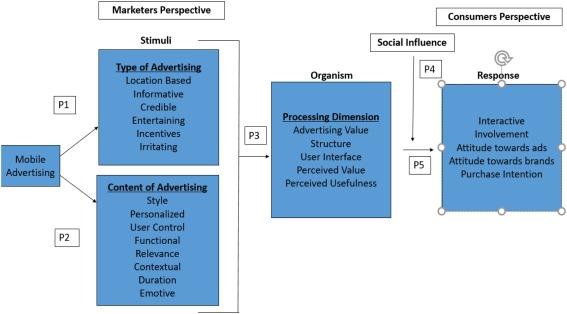Unlocking Success: How Office Managers Can Maximize Efficiency with Learning Platforms
In today’s rapidly evolving educational landscape, universities, colleges, and schools are embracing technology to enhance learning and streamline administrative operations. For job seekers targeting education technology roles, notably as office managers, mastering teh strategic use of learning platforms is crucial for driving institutional success.This thorough guide will help you understand the critical intersection between office management and education technology, and how leveraging learning platforms can unleash optimum efficiency in academic environments.
Understanding the Role of the Office Manager in Education Technology
As an office manager at a university, college, or school, your responsibilities extend far beyond conventional administrative duties. In the digital age, office managers are pivotal in bridging the gap between academic staff, students, and technology. Integrating education technology—especially learning management systems (LMS)—into daily operations can transform the educational experience and elevate your role to that of a digital innovator within the institution.
- Coordinating between faculty, students, and IT teams
- Managing digital dialog and workflows
- Supporting remote and hybrid learning models
- Facilitating professional development using online tools
- Ensuring data privacy and compliance with regulations
The Importance of Learning Platforms in Academic Office Management
Learning platforms are software solutions designed to deliver, track, and manage educational content and training. for office managers, thes platforms offer an array of features that can considerably amplify efficiency within educational institutions. Understanding how to deploy and champion these platforms is key for those aspiring to make an impact in education technology.
Key Features of Leading Learning Platforms
- Centralized document management and resource sharing
- Online scheduling and automated reminders
- Data analytics for monitoring student and staff engagement
- secure communication channels and discussion boards
- Customizable user roles and permissions for data security
Benefits of Leveraging Learning Platforms for office Managers
Adopting and optimizing learning platforms can drive substantial benefits for office managers and their institutions.Here are some compelling advantages that highlight the value of education technology in office management roles:
Enhanced Collaboration and Communication
- Fosters real-time interaction among staff, faculty, and students
- Streamlines feedback and reporting processes thru direct messaging and notifications
- facilitates the sharing of schedules, notices, and resources
Streamlined Administrative Workflows
- Automates routine tasks such as attendance tracking, reporting, and scheduling
- Reduces paperwork and manual errors
- Improves task delegation through digital workflow management
Data-Driven Decision Making
- Provides actionable insights via real-time analytics and reports
- Enables evidence-based planning for resource allocation and staff development
- Improves transparency for compliance and accreditation
Supports Remote and Hybrid work Environments
- Enables seamless operations whether on-site or remote
- Supports the management of diverse work schedules
- Facilitates ongoing training and support for staff using virtual workshops and courses
Maximizing Efficiency: Practical Tips for Office Managers
Ready to elevate your office management skills with learning platforms? Here are proven strategies and practical tips for job seekers entering the education technology sector and current office managers seeking to boost efficiency:
1. Master the Leading Learning Management Systems
- Familiarize yourself with popular LMS like Canvas, Blackboard, Moodle, and Google Classroom.
- Complete online certifications to validate your expertise and showcase it on your resume.
- Stay updated on system upgrades and new features.
2. Promote Digital Literacy and Training
- Organize workshops and resources to support staff adaptation to new platforms.
- create easy-to-follow guides for common tasks (enrollment, scheduling, reporting).
- Encourage ongoing learning and knowledge sharing among staff.
3. Automate and Customize Administrative Processes
- Utilize automation features for tasks such as reminders,assignments,and approval workflows.
- Customize system dashboards for different user groups—faculty, students, and administrators.
- Regularly review and optimize processes for maximum efficiency.
4. Prioritize Data Security and Privacy
- Implement strict user roles and access controls within learning platforms.
- Conduct regular audits to ensure compliance with data protection regulations.
- Educate staff on privacy best practices and secure data handling.
5. Foster a Culture of Continuous Improvement
- Solicit feedback from faculty,staff,and students to identify pain points and opportunities.
- Leverage analytics to track outcomes and inform process improvements.
- Celebrate milestones and share success stories to encourage platform adoption.
What Employers Look for in EdTech Office Manager Candidates
Aspirants for office manager roles within educational institutions need to showcase a blend of tech-savviness, organizational acumen, and interpersonal skills. Here’s what modern employers typically seek when filling education technology roles:
- Technical Proficiency: Deep understanding of learning platforms and digital tools.
- Leadership Skills: Ability to train and support staff through technological change.
- Analytical Thinking: Skilled in interpreting data and using analytics for decision-making.
- Problem-Solving: Resourceful and solutions-oriented in addressing operational challenges.
- Communication: Clear,responsive,and supportive in digital and in-person environments.
Future Trends: the Evolving Role of Office Managers in Education Technology
As education institutions continue to digitize, the office manager’s role will keep evolving. here are some trends shaping the future of office management in education technology:
- Increased use of AI and automation for personalized support and workflow optimization
- Integration of mobile applications for on-the-go office management
- Expansion of virtual and augmented reality tools for interactive training and collaboration
- Greater emphasis on cyber security skills and compliance management
Staying ahead of these trends can make you a highly competitive candidate for office manager roles in the education technology sector.
Conclusion: Position Yourself for Success in EdTech Office Management
For job seekers aiming to secure a role as an office manager within the thriving field of education technology, understanding the power and functionality of learning platforms is indispensable. By honing your tech skills, embracing digital transformation, and proactively supporting your institution’s goals, you can dramatically boost efficiency and create meaningful impact. Whether you are at a university, college, or school, the ability to maximize learning platforms sets you apart as a driving force for organizational success.
Start developing your expertise today, and become the office manager who unlocks success for your entire educational community.

